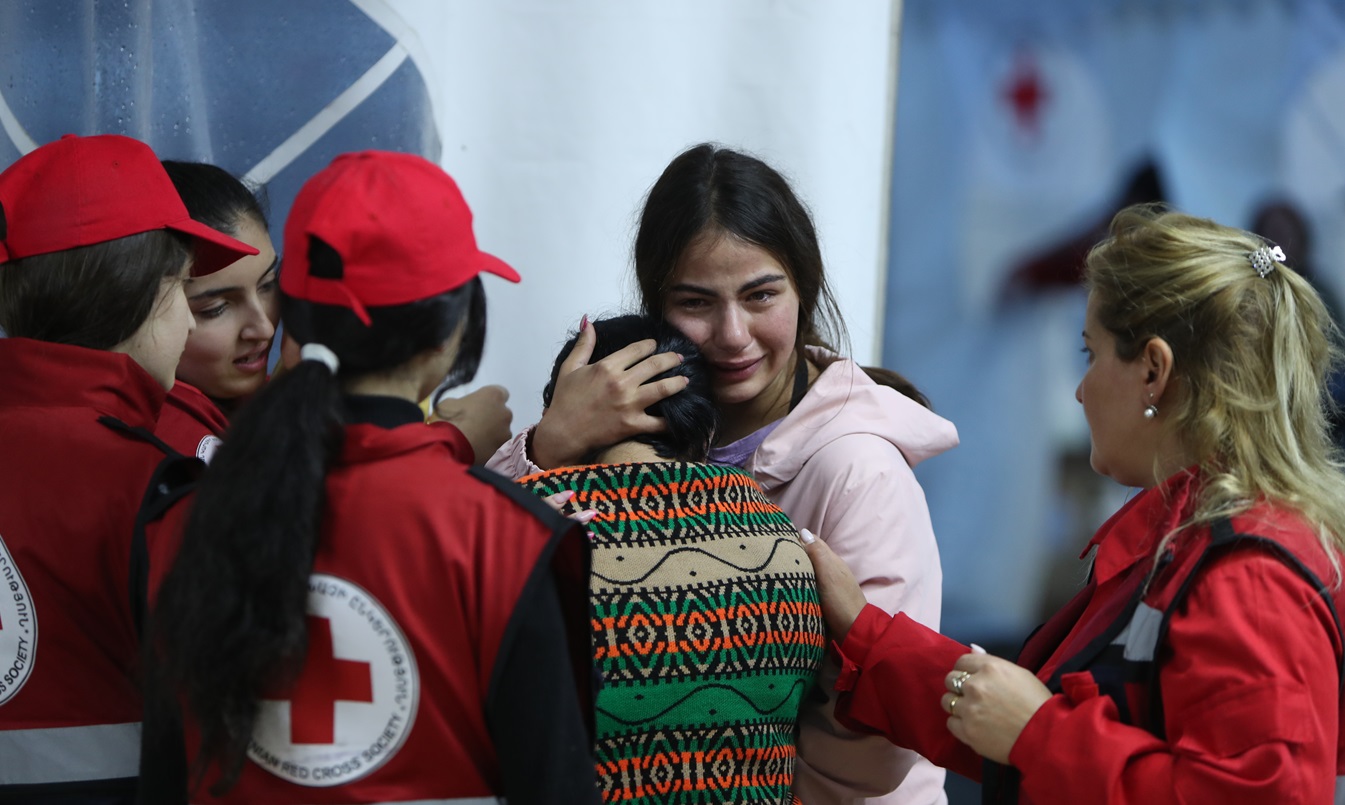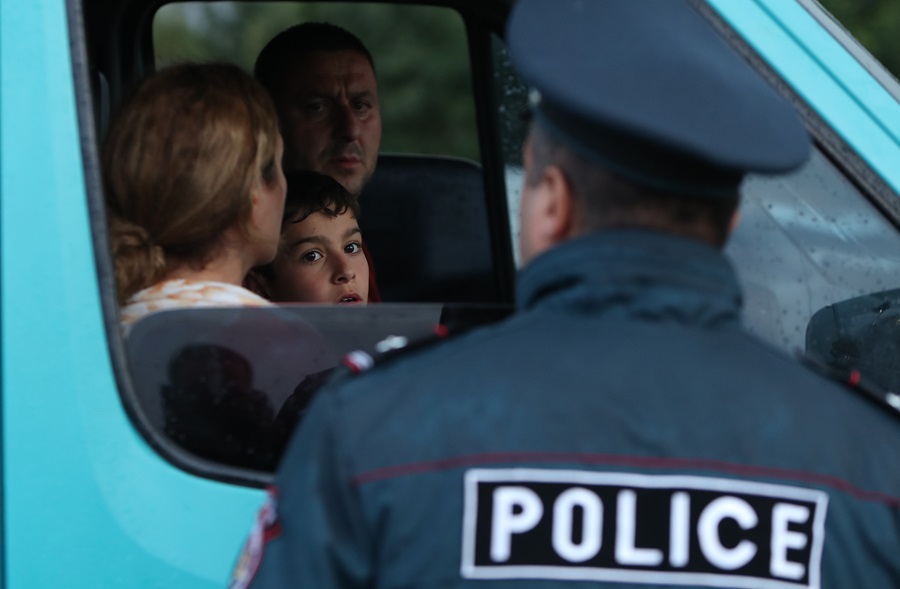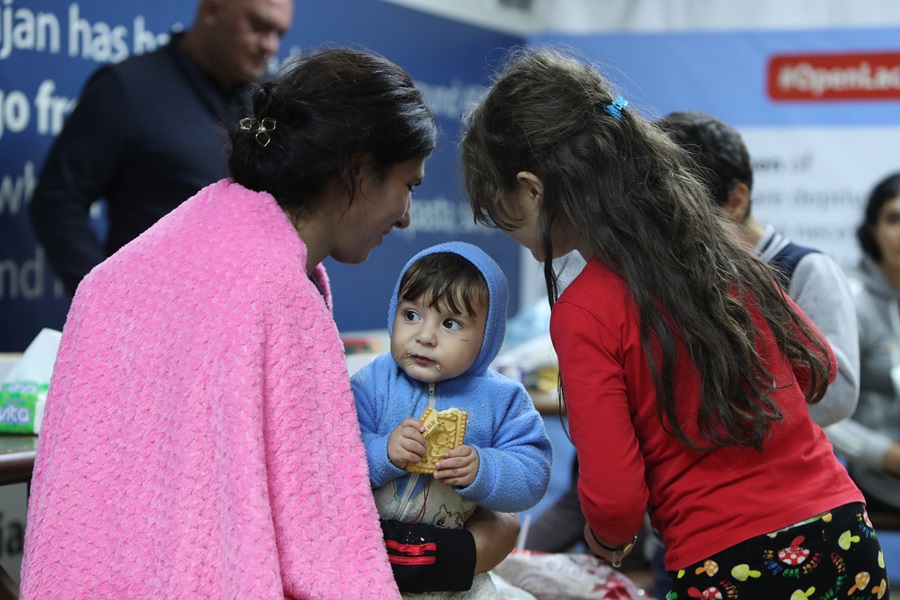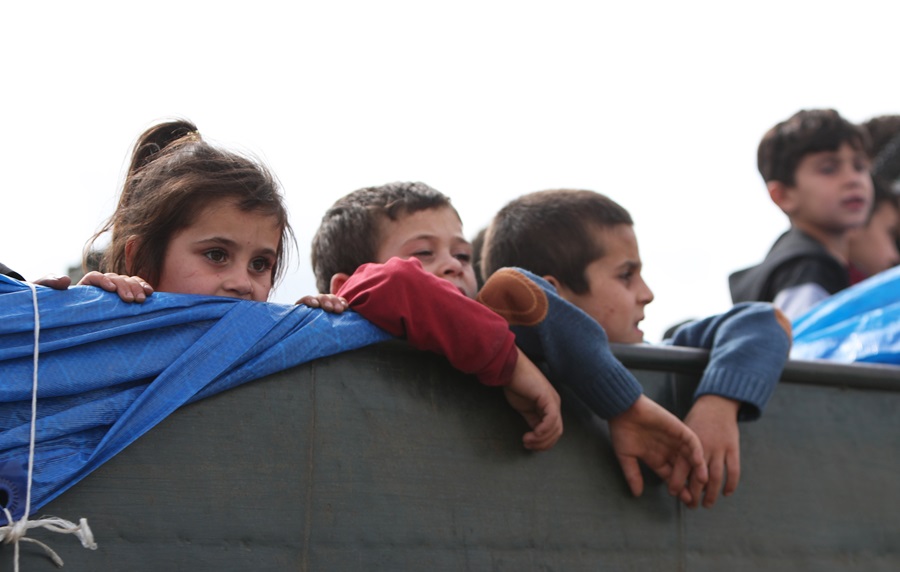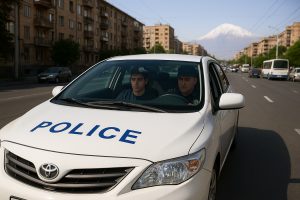Marina, 67, displaced from Artsakh with her son, her daughter-in-law and their two kids has found herself in the town of Abovyan in Kotayq, in the Sports and Culture Complex after Gagik Tsarukyan, which is currently turned into a temporary shelter for part of displaced persons from Artsakh. She says, they long for their home and their garden in Stepanakert and the crops it used to provide; she says, now they feel themselves in jail.
“We miss our home terribly; kids start crying every time they hear us talk about it. My son, Armen, is a 7th grader, he once ran into a classmate [from Artsakh] and I wish you could see the way they embraced each other crying…,” Marina recalls.
More than 100 thousand people were displaced as a consequence of the Azerbaijani assault against Artsakh on 19 September, almost every third of which have been underage.
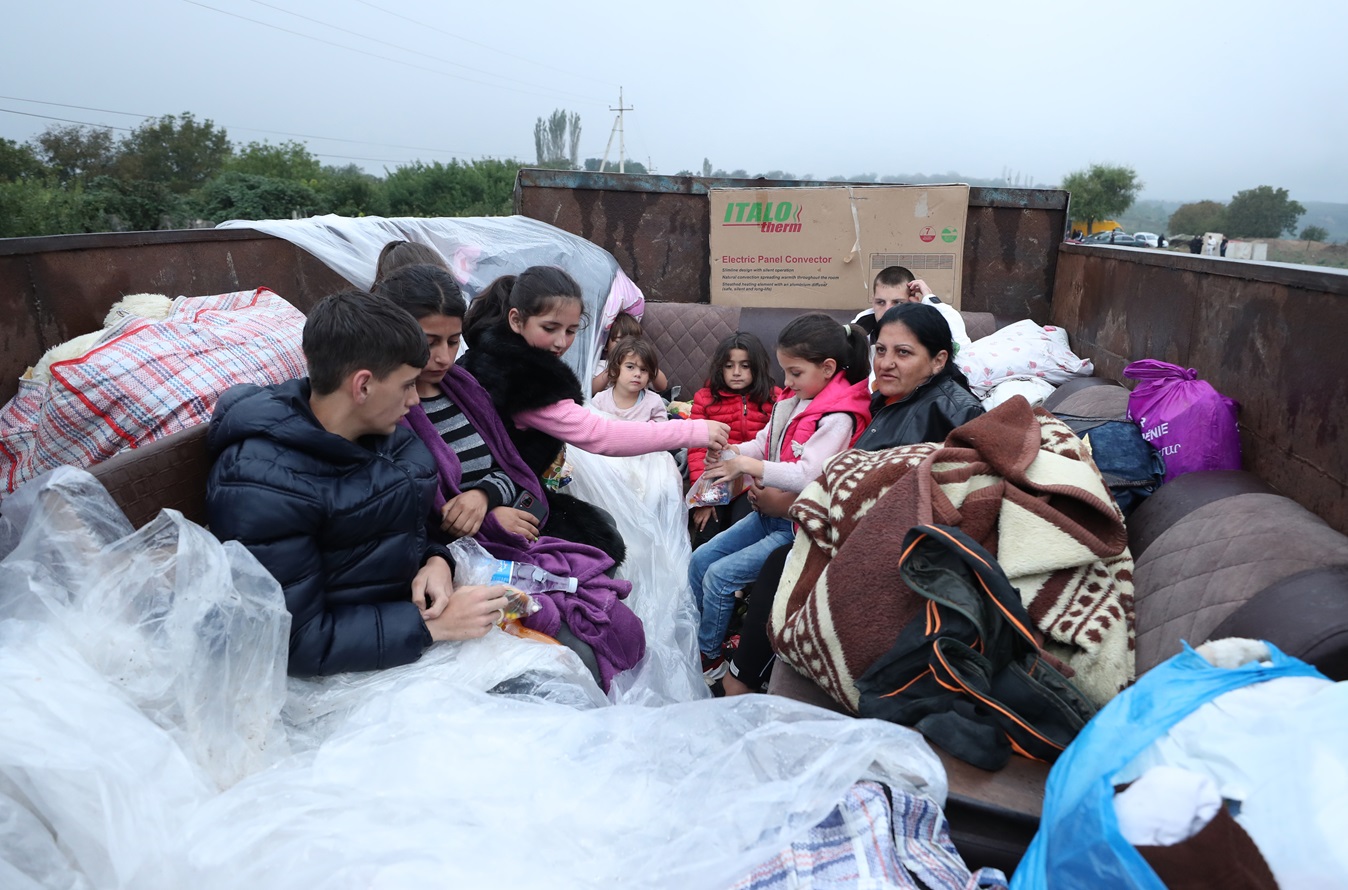
In a statement disseminated earlier in October of this year, UNICEF underlined that more than 30 000 children have been forced to flee their homes due to military escalation in their home communities. The organization warned that without a proper support the kids’ mental health may deteriorate.
“In addition to displacement, children arriving in Armenia have not been able to access quality education continuously and have lived in an unsafe or insecure environment with families reporting the fear of attacks,” the message read.
According to the statement, there are reports some children prefer isolation, avoid socializing, and are unable to express own feelings or accept the situation.
According to the same statement, the social workers at the safe places opened by the UNICEF in Goris, rendering services to hundreds of children, have reported the kids deal with intense feelings of sadness, anxiety, fear and anger, manifesting in nightmares, bedwetting, and inconsolable crying.
About 200 of the children displaced from Artsakh are currently getting professional support in 24 daycare centers operating in Armenia.

“There are cases of serious traumatic conditions, where children have eye-witnessed killing of other children, as well as cases where parents have died in the notorious blast,” Anahit Hovhannisyan, the head of the Children Issues Department of the Ministry of Labor and Social Issues, says.
Hovhannisyan says the support to children and families from Artsakh and beyond is provided as part of grant programs. For that purpose, some AMD 506 million have been allotted this year.
The representative of the ministry says, the social services still continue the needs assessment work and that the ministry cooperates with the UNICEF to expand the activities of the daycare centers.
UNICEF, in its turn, calls on to make required investments to support children with mental problems and provide them with psychological and social aid: “We are now seeing the extent to which these children have suffered. Displacement and hostilities, compounded by deprivation have wreaked havoc on their physical and mental health and psychological well-being. Without sustained support, children are at risk of bearing the effects of these deeply distressing events for years to come,” Christine Weigard, UNICEF Armenia representative says.
“This is equally important not only in terms of early identification and immediate support but also in the long run as families will continue to deal with loss and post-traumatic stress,” the statement by UNICEF says.
Anaida, a forcibly displaced mother of 2-year-old toddler twins and a 7-month infant, says kids keep getting ill regularly. Anaida, with her husband and their three underage kids have found shelter in the village of Hatsashen in Aragatsotn. And though there is nothing to threaten their safety at the moment, the mother now shows signs of sleep disorder, which is likely to be due to the kids’ health condition, added to all sorts of household and financial issues that require urgent solution.
She says, though, the issues are solvable, because the psychological problems are much harder to overcome, including the loss of home, land, and homeland:
I can’t stop thinking I did not manage to go visit my father’s grave one last time, because of the lack of fuel…
Experts of the Armenian Psychiatric Association provide professional support to dozens of families from Artsakh who have found themselves in similar situations.
The association, along with many other non-governmental organizations across Armenia, do their best to support those in need of professional psychological help, by making it accessible to the persons displaced from Artsakh.
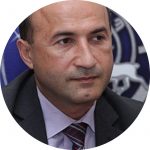
Armen Soghoyan, the chairman of the Armenian Psychiatric Association, says a timely psychological support helps prevent develop a number of mental and physical health problems. A support provided in the early stages of distress decreases the chances of it developing into prolonged condition.
“A psychological support of proper quality is a big help both for a certain group of people and the healthcare system and the state, at large. That is why the support shall be delivered as soon as it can possibly be organized; which is exactly what we actually do,” Soghoyan underlines.
The Armenian Psychiatric Association has involved volunteers to organize the support; in partnership with the World Health Organization it has also organized mobile groups, which travel to provide support to people displaced from Artsakh, along with the expert groups by the Ministry of Health.
We have also engaged our colleagues displaced from Artsakh, thus ensuring their employment and a most comprehensive support to those who need it, because no one is aware of the situation better than them,” Soghoyan says. He adds, the group also works with people who have burn injuries, as well as their family members. Sometimes, the medical personnel working with those with burn injuries needs psychological help, too.
The memories of forcible displacement haunt Armida at nights; her thoughts and the tremor in the body keep her awake.
“We were so scared when crossing the Hakari Bridge, we were near dead,” she says.
She recalls the work, life earnings, and the beautiful three-storied house with a balcony that was once used for neighbors’ tea parties.
Armida accepts she needs a professional help to overcome the condition, but at the moment, she says, there are issues fundamental that need to be faced: Armida takes care of her sick mother; she also has a whole list of basic things to set up their life and first and foremost, a house for rent.
Armen Soghoyan underlines people from Artsakh share a feeling of loss of homeland and ruined homes, but those of them, whose life environment has not changed a lot, have higher chances to adapt to new conditions relatively easily; that refers to rural residents, who have settled in rural communities in the territory of the Republic of Armenia, and are currently in the process of restarting farming.
Soghoyan says those who need psychological support should be provided one, as soon as possible: “Health issues of a single person are not his personal matters, they are equally important for the state and the society.”
By Lilit Harutyunyan
Pictures by Photolure News Agency
This article has been written in cooperation with the Friedrich Ebert-Stiftung (FES).
© All the stories, infographics and other visuals bearing the Ampop Media logo is possible to publish on other audiovisual platforms only in case of an agreement reached with Ampop Media and/or JFF.
Փորձագետի կարծիք
First Published: 07/12/2023


